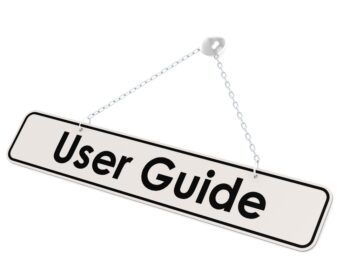Often the Risk Manager or the employer's workers compensation claims coordinator who is actively involved in their work comp claims will wonder: “Why in the world did the adjuster pay that much money to settle that claim?” There could be several reasons why the claim settlement is higher or even much higher than was expected, but the reason in many cases is the adjuster is not a good negotiator.
Some adjusters are excellent negotiators, but many adjusters would rather go to the dentist then aggressively negotiate claim settlements. The reasons some adjusters are not good at negotiating settlement vary. Some adjusters see negotiations as being confrontational and it does not fit in with their personality. Some adjusters are not motivated and would rather let the defense attorney or someone else handle that part of the claim. While personality and laziness are the reasons some adjusters do not negotiate good settlements, the primary reason the majority of adjusters overpay claims when the negotiate a settlement is they do not know how to negotiate. (WCxKit)
A major state university offering an undergraduate program in risk management, a graduate program in risk management and a PhD program in risk management does not offer a single course in settlement negotiations. This holds true for most insurance training.
The insurance companies and schools that train adjuster trainees spend all their time teaching the insurance policy provisions and the necessary information to pass the state's adjuster licensing exam. Insurance companies will often spend weeks training a new adjuster on intricate part of the insurance coverage, but not spend one minute teaching the adjuster how to spend their money.
With this in mind, what should the employer do? The employer should review who the adjusters are that handle the claims for your company. Hopefully, you have previously arranged for your claims to be handled by either a designated adjuster who handles all of your claims or a group of adjusters assigned to your account who handle all of your claims. (If your claims are being assigned willy-nilly to many different adjusters, that is half of your high claim settlements problem right there).
When you have your claims assigned to the minimum number of adjusters, you can use your data management system to sort the claim settlements by adjuster. This will assist you in identifying which adjusters who routinely get good claim settlements and which adjusters routinely seem to pay the most on the work comp claims they handle. If you have an adjuster or adjusters who are routinely overpaying claims, ask the insurer or the third party administrator to reassign your claims to the adjusters who routinely get good settlements. If the adjuster(s) who get the best settlements have a full caseload (and they usually do), that may not be possible. If you cannot get the claims reassigned to the adjuster with the best settlements, at least get your claims reassigned to another adjuster(s).
There are some other approaches to getting better claim settlements you can consider. If the claim is large enough to warrant your time, and you are self-insured, you can instruct the claims administrator for the adjuster to refer the settlement negotiations to yourself. You might find settlement negotiations more difficult than you expect, but you may also find that the half million dollar claim the adjuster was talking about is really only a quarter million dollar claim.
Some large self-insurers who have given up on their adjusters getting a good claim settlement routinely refer all their larger claims to their legal defense firm(s) to negotiate the settlement. As the defense lawyers are working directly for them, and have a lot more practice resolving confrontational situations, they often obtain a much better settlement than the claims adjuster would have. (They are also much more suave in their explanation as to why the claim cannot be settled as the risk manager thought.)
Another approach some large self-insurers have taken on their large claims is to have a structured settlement broker negotiate the settlement. This works if the structured settlement broker has some legal experience and can deal with the vast array of work comp legal system intricacies. (WcxKitz)
In still other companies, the risk manager negotiates the claims to settlement. He gets authority from the carrier then goes to the hearing to settle the claims personally.
While we cannot tell you what the exact, best approach is for controlling the cost of your claim settlements, we do recommend that you spend some time analyzing the situation. Once you have identified the adjusters who routinely overpay your claims, you can take the necessary steps to change the situation.
Author Rebecca Shafer, JD, President of Amaxx Risks Solutions, Inc. is a national expert in the field of workers compensation. She is a writer, speaker and website publisher. Her expertise is working with employers to reduce workers compensation costs, and her clients include airlines, healthcare, printing/publishing, pharmaceuticals, retail, hospitality and manufacturing. See www.LowerWC.com for more information. Contact: RShafer@ReduceYourWorkersComp.com or 860-553-6604.
WC IQ TEST: http://www.workerscompkit.com/intro/
WORK COMP CALCULATOR: http://www.LowerWC.com/calculator.php
MODIFIED DUTY CALCULATOR: http://www.LowerWC.com/transitional-duty-cost-calculator.php
WC GROUP: http://www.linkedin.com/groups?homeNewMember=&gid=1922050/
SUBSCRIBE: Workers Comp Resource Center Newsletter
Do not use this information without independent verification. All state laws vary. You should consult with your insurance broker or agent about workers comp issues.
SUBSCRIBE: Workers Comp Resource Center Newsletter
Do not use this information without independent verification. All state laws vary. You should consult with your insurance broker or agent about workers comp issues.
©2011 Amaxx Risk Solutions, Inc. All rights reserved under International Copyright Law. If you would like permission to reprint this material, contact Info@WorkersCompKit.com.



























